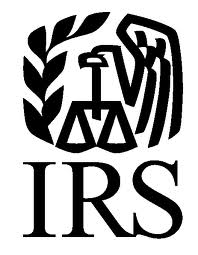Are you, or do you plan to be, a single owner or shareholder in an S Corporation? Are you, or are you planning on, using the low payroll strategy to minimize payroll taxes? Well read on, as this issue is being revisited by Congress and the IRS and the climate is definitely changing.
As you may already know, S Corporation enjoy a tax advantage that can save their shareholders a considerable amount of money. They are allowed to decide how much of their income from the S Corporation that they are going to call payroll. The rest escapes social security and medicare tax.
For years this has been a planning tool to keep taxes at a reasonable level. When you combine this benefit with the fact that S Corporations also escape the double level of taxation incurred by C Corporations, converting to this type of entity can make a lot of sense.
As I said, this has been an effective planning tool for many, many years. Unfortunately, it has also been abused for many, many years. There’s an old saying in this industry that says pigs get fed and hogs get slaughtered. It’s one thing to take advantage of a tax law. This is legitimate and wise. It’s quite another to abuse one. This just makes you a target for litigation and increases your chances of coming out much worse than if you had been conservative in the first place.
In the past, when the IRS has taken taxpayers to court over this issue, they have lost almost every time. Historically, they were only successful when the taxpayer recorded no payroll at all! When some payroll was recorded though, the IRS had an uphill battle and usually lost.
This climate is changing though. In our current revenue hungry environment, the government is looking hard for new sources of cash. One example of this is legislation that made it through the House last year. It would have required all employees and shareholders of personal-service companies – consultants, lawyers, and accountants for example – to pay payroll taxes on all their profits.
Fortunately this did not make it through the Senate. If it had, it would have cost these companies a tremendous amount of money. It also would have caused the IRS to be seeing dollar signs everywhere and smiling from ear to ear.
Another occurrence indicative of this climate change is the recently litigated case between the IRS and David E. Watson, a CPA in West Des Moines, Iowa. In this case, Mr. Watson’s share of his firms profits was around $200,000 for each of two years. During those two years, he paid himself only $24,000 in salary. The IRS felt this was really abusive and litigated the case in District Court. The judge agreed with the IRS and David ended up paying payroll taxes and penalties on $91,044 instead of $24,000.
Now there are a few things to be said here. First of all, there is no law that says you have to pay yourself a specific amount. What’s reasonable is a subjective question and one of those gray areas of the tax law. However, as I said in the beginning, pigs get fed and hogs get slaughtered. Had David been more conservative in the beginning, he may never have found himself in court.
David was pretty fortunate in that the only reason the IRS didn’t shoot for a higher number is that it would not have done them any good. The years in question were 2002 and 2003, when both social security and medicare taxes were capped. In more recent years medicare has no cap so the IRS tries to argue that all profits should be reclassified as payroll!
David says he’s going to appeal the case. By the time he’s done though, even if he wins he may never recover his court costs and loss of time. Not to mention the precedent that has been set by this case. The moral of the story has always been to avoid being abusive. I believe any competent tax adviser would have advised against David’s strategy. As tax advisers, we often spend lots of time convincing our clients to keep their salaries reasonable.
If you are in this same situation, just be aware that the climate is changing like it never has before. The IRS is probably going to be much more bold now that they have won this case. If congress passes legislation in this area it may all become a moot point. We’ll all be paying employment taxes on everything! We can all help prevent that legislation though by not being abusive. Congress passed the S Corporation rules in the first place to help ease the tax burden on small companies. Until recently, they have been hesitant to step in and change things. A rule change in this area would be a tremendous burden on everyone. But if the abuse continues, it will force their hand.
If you don’t welcome trouble from the IRS, I would recommend that you keep your salary on the high side of reasonable. In the end, what’s reasonable is a matter of opinion. That opinion is based on a fairly long list of considerations. If you’re uncertain what’s reasonable, a visit to your tax adviser may be in order.
If you enjoyed this article or are interested in hearing more on this subject, please leave a comment. Also, feel free to “like” our site by clicking the like button in the Facebook box.
Thanks for visiting!
About Robert Seth
Robert  Seth is a CPA in the Clark County, Washington area who has been serving individual and small business clients for the last 25 years. His business includes a growing number of remotely serviced customers throughout the United States. He’s also a writer and technology expert. He has a passion for improving the lives of others by helping them simplify the complicated stuff in their lives.
Seth is a CPA in the Clark County, Washington area who has been serving individual and small business clients for the last 25 years. His business includes a growing number of remotely serviced customers throughout the United States. He’s also a writer and technology expert. He has a passion for improving the lives of others by helping them simplify the complicated stuff in their lives.



